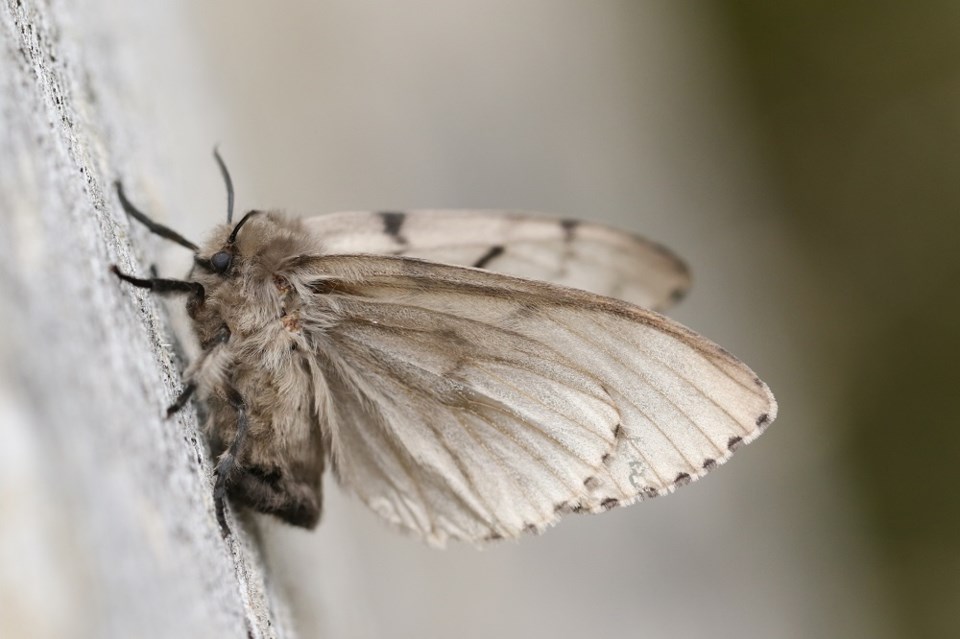Don't be alarmed if you see some people spraying pesticides in Coquitlam in the coming weeks.
The B.C. ministry of forests says ground spray treatments are set to be conducted this spring across more than 40 hectares of land off United Boulevard to curb an invasive species of moths.
Lymantria moths are said to becoming more established across the province and pose a risk to surrounding environments like forests, farms, orchards and urban trees.
"If left untreated, the invasive lymantria moths could spread to other areas of British Columbia," a news release states.
"Trees such as Garry oak, arbutus, red alder, aspen, cottonwood, maple, orchard fruit trees, nut trees and many species of urban ornamental trees would be affected, as well as food crops such as apples, blueberries and other fruits."
Formerly known as gypsy moths, the insect's populations have defoliated sections of forests and residential areas in Ontario and the eastern U.S.
The province adds lymantria moths are unintentionally brought to B.C. on vehicles and equipment the east coast, and was given permission to amend its existing pesticide use permit in March 2021.
"Last year's monitoring program trapped an above-average number of male moths on the Lower Mainland, indicating that the moths could become established in those locations if the proposed pesticide spraying is not done," the release further states.
"Trapping and monitoring results from 2021 show clear evidence that lymantria moth populations have increased dramatically in the areas slated for treatment this spring, likely resulting from outbreaks in Ontario and Quebec during the past three years. Egg masses are commonly transported to B.C. on recreational vehicles and outdoor household articles originating from affected areas outside of the province."
Spraying in Coquitlam is set to start in early May.
The forests ministry says the Foray 48B spray its using is not harmful to humans, mammals, birds, fish, plants, reptiles, amphibians, bees or other insects.
Other planned treatment areas in the Lower Mainland are:
- Langley
- 362 hectares
- Mission
- 341 hectares
- Burnaby
- 193 hectares near Brentwood Mall)
- Surrey
- 108 hectares in the Grandview Heights area
- Chilliwack
- 49 hectares along Chilliwack River Road





